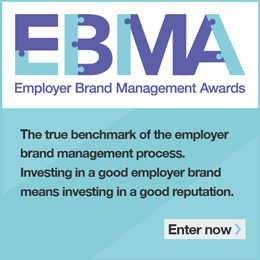Opinion: "Coherence over consistency"

Blind consistency is not necessarily conducive to diversity, says Phil Morley
“If everyone is thinking alike, then somebody isn't thinking.” George S Patton
I have a confession. While I’ve managed, written and followed brand guidelines, I’ve also, ahem, occasionally flouted them.
I’m not a brand rule breaker per se. I just object to pursuing brand consistency at all costs – especially when it threatens our ability to think.
Consistency has its place, and it’s fine when it comes to logo use and typography, but it’s harder with more subjective elements like imagery and tone of voice.
When communicating with diverse workforces, brands should aim towards coherence rather than just consistency. In these instances, the creative potential and power reside in those subjective elements.
The logo is the logo – we can all agree on that. But prescribing every last nuance of a company’s tone of voice when the company operates in over 60 countries? Well, that’s harder to do.
Guidelines are meant to be just that: they should guide, rather than prescribe every last detail. But, and this is important, you have to create a dynamic and challenging culture, and that means creating a strong shared foundation. This is the only way to enable creative expression and achieve coherence when you’re a multinational company.
Brands should focus on what we think, feel and do. And we all think, feel and do differently, even in response to the same stimuli. Sometimes organisations overlook this aspect of human nature when they communicate with employees.
Instead of accommodating our differences, they prescribe a system based on logic and rationality, and expect consistency in outcomes. But this is unrealistic, especially for multinational brands.
Take a company’s values, for example. Companies need to allow and expect interpretation at a local level. Ideally, a set of values accommodates the views of employees, regions and business units, but defining values is typically an exercise in compromise, and sometimes the distillation and simplification go too far.
Culture is conceptual, so there’s limited use in just boiling it down to a single word or five, which are, at best, a crude means for sharing complex notions of desired behaviour and attitude. Values require interpretation and that is contextual: to the individual, to the situation and the location.
You can get around this by thinking about values as coherent concepts, instead of single words. Coherent interpretation means educating and enabling employees to explore and ultimately embody the values in action.
When it comes to employer branding, we know the employee experience is the sum of many parts. These parts are both moving and assembled in different ways. Many factors affect the way an employee feels, from where they are on their career journey, to where they are in the world.
Striving for coherence when planning activities and campaigns means appreciating the value of a range of outcomes. To me, this is a natural result of acknowledging authenticity and diversity, and leads to variations on a theme: a harmonic chord as opposed to an amplified single note.
Coherence is fundamental to the success of integrated campaigns, because campaigns involve multiple audiences, messages, channels and outcomes matter at every stage of the development, design and delivery journey.
But coherence requires judgement. It’s about finding a shared core and allowing and encouraging fuzzy edges tailored to the context.
Companies need an approach that embraces ambiguity, subjectivity and personalisation. We need interpretive answers over prescriptive ones.
Coherence lets people adapt to an organisation’s dynamic tensions. It offers a way of being both global and local, the same and different, for everyone.
Favour coherence over consistency and you will create a culture where employees can think their way to the answer – wherever they are in the world.
Phil Morley is director of employee engagement at MerchantCantos. He will be speaking at the Employer Brand Management conference on 9 December.




